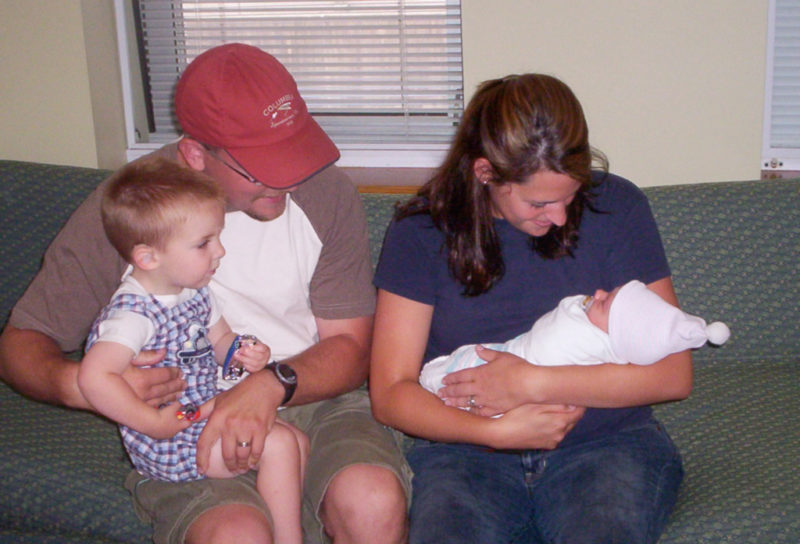In honor of National Adoption Month, take a little advice from a real mom.
When my husband and I married in October 2000, we took one full year to enjoy being newlyweds. By Christmas 2001, we stopped all forms of birth control to, as we said, “see what happens.” We were nervous, yet hopeful that 2002 would bring our first child.
To our dismay, not a single thing happened.
Cue the doctor appointments, fertility specialists, and one heartbreaking phone call to confirm we couldn’t conceive a child.
We had been together since we were 17-years-old. We had already named our four future children. We wondered if they’d have my dark hair, his green eyes, our towering heights. Out the window went our dreams of having a family and in the void came bitterness. A dark cloud hovered over our lives for one full year.
By January 2003, the cloud lifted as we began the process of adoption, which is a mixed bag of emotions for which no one can prepare you. The lingering hurt of infertility met the fear of not being chosen by a birthmother, or worse, being selected and then she’d change her mind. I was eager to adopt, but I was fraught with fear that we would receive a child, only to have the child taken back after I’d already fallen in love.
Thankfully, we were spared that particular heartache because in August 2003 we met a woman who was eight months pregnant and wanted to place the child for adoption.
We were kindreds from the start, and though some people warned me not to get too attached until the waiting period ended, I had no doubt that she was carrying our son. He arrived the following month and we had the privilege of being in the delivery room when he was born. Two and half years later, in 2006, a second son came our way. While the heartache of infertility was sufficiently replaced by the surprise and joy of motherhood, there are lingering thoughts that only surface when faced with a comment or question that catches me off guard.
While the heartache of infertility was sufficiently replaced by the surprise and joy of motherhood, there are lingering thoughts that only surface when faced with a comment or question that catches me off guard.
To the well-meaning people who want to know more about adoption, here are three questions you ought to rephrase:
1. Some version of inquiry about the child’s “real mom.” Where is his real mom? Are you in touch with his real mom? Did you meet his real mom?
I encountered questions like these for years after our first son was born, and again after the second. I knew what people meant and that their questions didn’t intend to offend, but oh how I struggled to hold back a bark. “I am his real mom,” I’d answer, sometimes with a gentle tone, sometimes without. I was the one who diapered, fed, comforted, nurtured, and held them. For future reference, take out real and replace it with birth.
2. Some version of inquiry about our having our “own children.” Did you want kids of your own? Did you try to have your own first? Could you still have children of your own?
In the same vein as “real mom,” asking an adoptive mother about having her own children only spotlights the likelihood that she grieved through infertility while simultaneously insinuating that her adopted children aren’t her own. It’s a double whammy. Some couples choose adoption as a result of infertility, but many choose it in addition to or in lieu of having biological children. Whatever the reason a woman chooses adoption, her children are her own. Instead, if you must ask, replace own with biological.
3. Some assertion that the birth mother was a bad person. Was she on drugs? Did she abandon her baby? I could never give up my own kid.
Adoption is the ultimate sacrifice. It is beauty from pain. It happens a dozen different ways for a dozen different reasons, but one thing can be certain: It is not easy to carry a baby for nine months, give birth to the child, and place him or her in the hands of someone else to raise. It is unmatched in love because adoption places the child’s life and well being above one’s own. With that understanding, adoptive parents hold birth mothers in high regard. They are life-givers. Without them, we would not be parents! Sure, some birth mothers suffer through a string of bad situations, and there are corners to turn for those women. However, many women who place their child for adoption are doing so with a big heart and a clear head. The circumstances through which these women walk have no barring on the overwhelming gratitude and respect we have for them. Questions about our childrens’ birth mothers should be posed delicately, for they did not abandon or give up their children. They placed them for adoption, and we are forever grateful.

















I love this article!